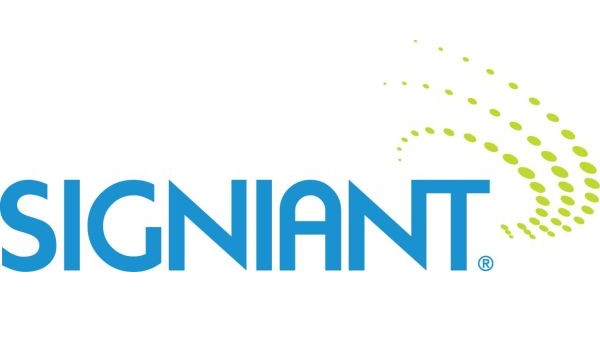
The professional video industry's #1 source for news, trends and product and tech information. Sign up below.
You are now subscribed
Your newsletter sign-up was successful
While the FCC’s vote in September to consider revising broadcast television ownership rules is long overdue, removing ownership caps will impact other regulations in such a way that requires taking a “holistic” approach to the issue, according to the International Center for Law & Economics.
“The ownership cap is only one piece of a tightly interconnected system of broadcast and carriage regulation,” the conservative think tank wrote in a paper released this week. “Ownership restrictions, Title VI’s retransmission-consent and must-carry rules, and the FCC’s regulatory authority over bargaining standards all interact to shape bargaining power and allocate surplus across the industry. Addressing just one element of this framework risks amplifying distortions in others.
“Indeed, the broadcast-television market is an unusual case in which the prevailing regulatory distortions are directly interrelated, operate on the same products and players, and fall under the same agency’s control," they added. That presents a unique opportunity for the FCC to approach reform holistically, rather than in a piecemeal fashion.”
“Calling current ownership limits of 39% in one market “out-dated”, the group characterized the limit, which was agreed upon in 2004, “a political compromise, rather than an economically grounded metric.”
The paper, "Broadcast Ownership, Retransmission, and the Case for Comprehensive Reform," penned by Eric Fruits, Geoffrey A. Manne, and Kristian Stout, repeats many of the same arguments made by other proponents of changing ownership caps.
Citing competitive pressures from streaming companies, who can reach 100% of U.S. households, they note that “local broadcasters must compete with these services for audiences and advertising revenue, while operating under ownership caps designed for an era in which they were presumed to be dominant media companies. In today’s market, however, broadcasters not only lack market power but face extremely powerful digital competitors whose national scale far exceeds anything broadcasters could legally achieve under the existing limits.”
Such economic pressures have different impacts on local stations depending on their market strength, the authors said, with highly-rated stations cutting back on syndicated content in favor of more local content.
The professional video industry's #1 source for news, trends and product and tech information. Sign up below.
“For market leaders, local news represents 'must-have' content that national competitors cannot replicate, providing leverage in fee negotiations and valuable differentiation for local advertisers,” they wrote.
Meanwhile, lower-rated local stations are having to cut back on local production in favor of national news feeds from their station group, as is the case of WNWO, Sinclair Broadcast Group's NBC affiliate in Toledo, Ohio, which abandoned local news in 2023 in favor of Sinclair’s Washington, D.C.-based “National News Desk” programming, supplemented with network and syndicated content.
The group noted that tepid viewer response to the changes only reinforced the notion that local viewers are looking elsewhere for news.
“Notably, consumer response to WNWO-TV’s changes was minimal, with no significant public outcry reported,” the group wrote. “The station’s small audience simply substituted to competing local newscasts, suggesting consumer indifference to programming changes at underperforming stations. This seems consistent with Nielsen Holdings data showing that growing numbers of Americans prefer online news sources over television news.”
The group concludes that the way broadcast station groups approach maximizing profits can differ across the industry, depending on current economic conditions and that stations need more flexibility to be able to compete against other media.
“The greatest threat to localism, therefore, may not be rising concentration in mid-sized markets, but the financial collapse of stations that are prevented from adapting to modern competitive realities,” they wrote.
The group questions the relevancy of the broadcast industry’s biggest source of revenue— retransmission fees. Citing broadcasters’ ability to distribute programming through websites, apps and streaming platforms, the authors wrote that the initial justification when the legislation mandating must carry was passed in 1992—that cable served as a “bottleneck” towards program access—no longer exists.
“Without the bottleneck problem, the economic justification for mandatory-carriage rules collapses,” they wrote.
The group also noted the occurrence of frequent network blackouts when broadcast groups fail to reach carriage agreements, as illustrated by the recent nearly two week removal of Disney and ABC programming from Youtube TV.
It concluded that both sides were to blame, adding that "these complex negotiations might be avoided entirely if the mandatory framework were eliminated, allowing standard commercial relationships to govern carriage.”
The group concludes that, in revising ownership caps, the FCC should remove retransmission consent in favor of a more laissez-faire approach.
“The most coherent approach would eliminate the retransmission-consent framework entirely, treating broadcasters like any other content creator and allowing copyright law and voluntary contracts to govern distributor relationships," they wrote. "This would end the regulatory asymmetry between broadcasters and streaming competitors, while removing the advantages broadcasters hold over independent networks.”
Tom has covered the broadcast technology market for the past 25 years, including three years handling member communications for the National Association of Broadcasters followed by a year as editor of Video Technology News and DTV Business executive newsletters for Phillips Publishing. In 1999 he launched digitalbroadcasting.com for internet B2B portal Verticalnet. He is also a charter member of the CTA's Academy of Digital TV Pioneers. Since 2001, he has been editor-in-chief of TV Tech (www.tvtech.com), the leading source of news and information on broadcast and related media technology and is a frequent contributor and moderator to the brand’s Tech Leadership events.

